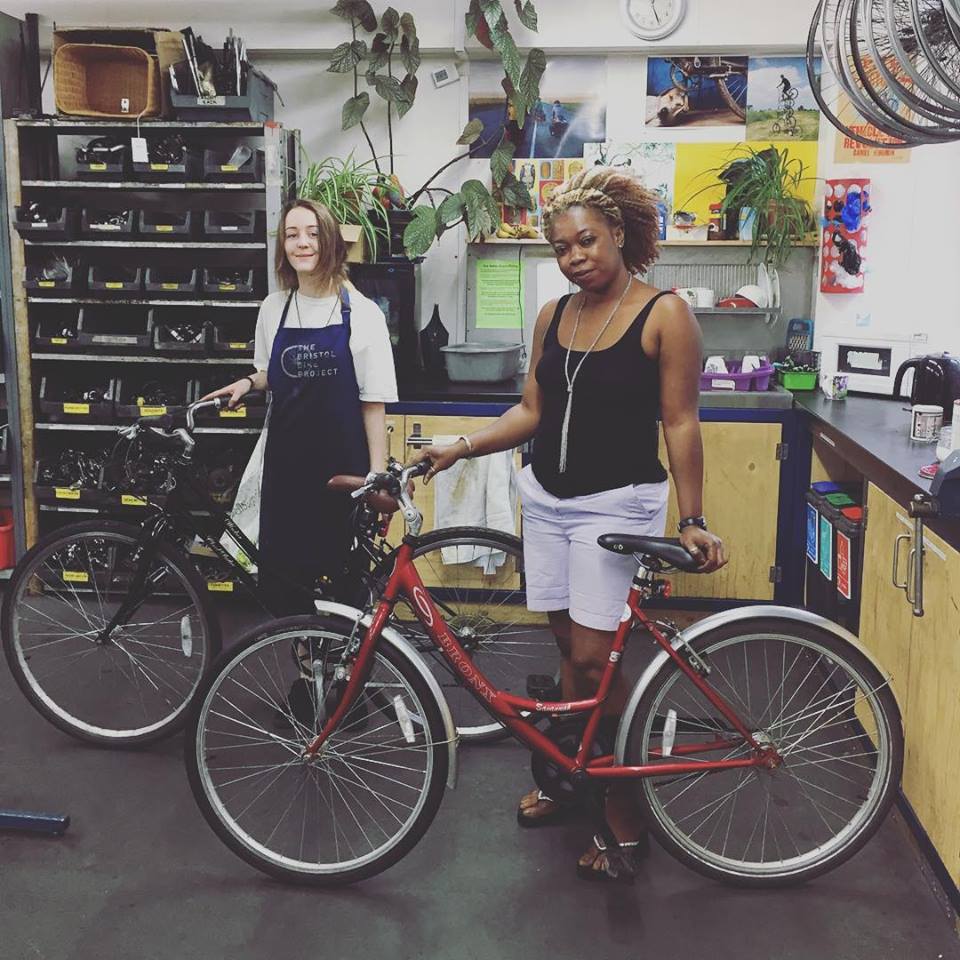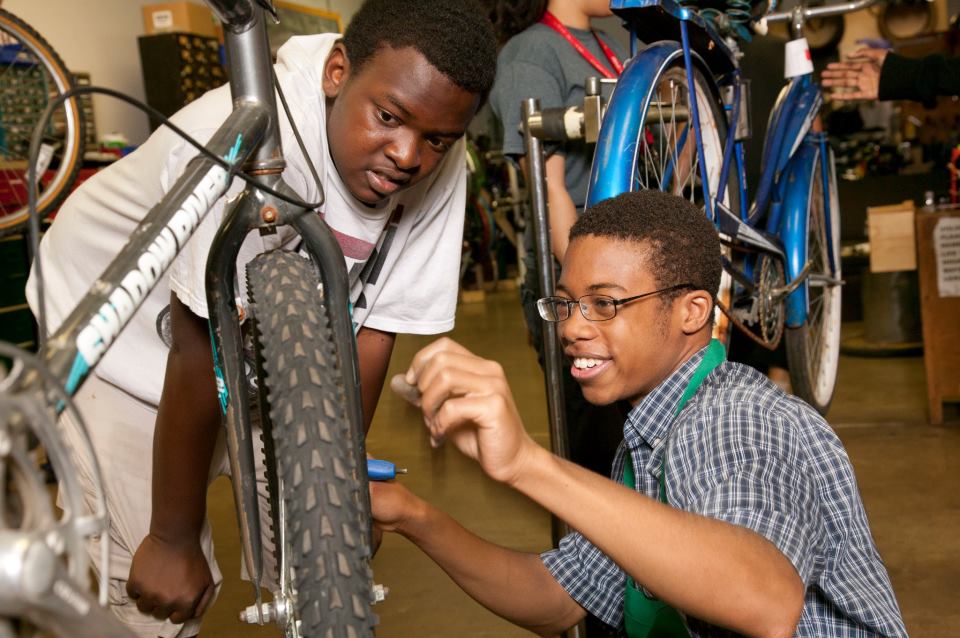Cycling still suffers from a major lack of diversity and, unfortunately, the (cis)male-dominated culture of bike shops is just one of the structural issues keeping people off bikes. Understanding how your bike works and feeling comfortable doing minor repairs is a big part of what enables cyclists to enjoy riding and build confidence. This week, we wanted to highlight some organisations who have made it their mission to help everyone learn the basics of bike maintenance.
Xail Hernandez is a team member at BICAS (Bicycle Inter-Community Art & Salvage), a non-profit collectively-run cooperative in Tucson, Arizona. Self-described as a community education and recycling centre for bicycles, BICAS welcomes people of all ages and walks of life.
Hernandez found out about BICAS six years ago when, after getting out of a relationship (and without her ex-girlfriend to drive her around), she found herself in need of a set of wheels of her own. Soon after getting her bike, she discovered WTF night, or Women, Trans, Femme night, a workshop developed to respond to the male-dominated area of bike maintenance. The WTF nights helped Hernandez realize that she could complete repairs herself and taught her the value of preventative maintenance. It also gave her the confidence that comes from being part of a community. As she told We Love Cycling: “I would leave WTF night feeling empowered and with grease stains on my pants, it felt good.”
Her community at BICAS also helped her overcome insecurities when it came to city riding. She explained that, “as a woman, I felt that I needed to always be apologetic whenever I was taking up space on the road.” This mentality slowly changed as her confidence grew, “I learned to put my safety first, and to take up the space I needed so I wouldn’t get pushed over the sidewalk.” As Hernandez pointed out, these are transferable skills that she is now able to extend to all parts of her life, “cycling has given me that self-esteem to not only make myself visible on the streets but also in spaces where I need to be more present and not apologize.”
Hernandez is now passing on this confidence to other riders. She helps host WTF workshops every Monday and explained that she continues to be inspired by the atmosphere. “BICAS is a place for constant change, integration, and communication. I have seen people come out empowered, and ready to share skills with other people.”
Robin Reid-Fraser works with another organisation that seeks to provide a safe space for everyone to learn about bike maintenance. Right to Move is a non-profit organisation based in Montreal, Quebec. It was started over 20 years ago by a group who believed bicycles are a form of transportation that should be available to all, regardless of gender, age, wealth or ethnicity.
Reid has been riding a bike for most of her life and when she started attending Women, Trans, Femme nights hosted by Right to Move, she knew she wanted to become a volunteer. She explained: “The most rewarding part for me is passing on skills and knowledge to others.” She loves sharing tricks and highlighting all the possibility that exists. As she explained: “Helping people use taps and dies to repair messed up threads on their frame, for example, is really satisfying because I feel like it’s a whole other level of modification and can give life to parts that otherwise could feel unsalvageable.”

When asked about what people living in communities who don’t have access to resources like WTF, Reid sympathized but also suggested that they get creative. “It’s true that not every community can support a community bike shop in general, much less a Women, Trans, Fem-only space to learn about bike repair. That said, I think it’s worth being innovative, whether that means learning from books and the internet or just tinkering away at home to see what works.”
She concludes by reaffirming how empowering these skills can be: “It feels really great and important to me to have the knowledge and skills to fix my bike. I really encourage other people to find ways to build up and share those skills in their own communities and networks.”
We couldn’t agree more. It’s important to remember that these organisations only exist because someone took the initiative to start them and as the cycling community works toward greater diversity, we hope to see a lot more popping up.
Here are some other great organisation offering diverse workshops that might just inspire you to get involved or start something of your own:
Broken Spoke Bike Co-Op

Oxford, UK
The Bristol Bike Project

Bristol, UK
https://thebristolbikeproject.org/
Cycles of Change

Minneapolis, US
London Bike Kitchen

London, UK




